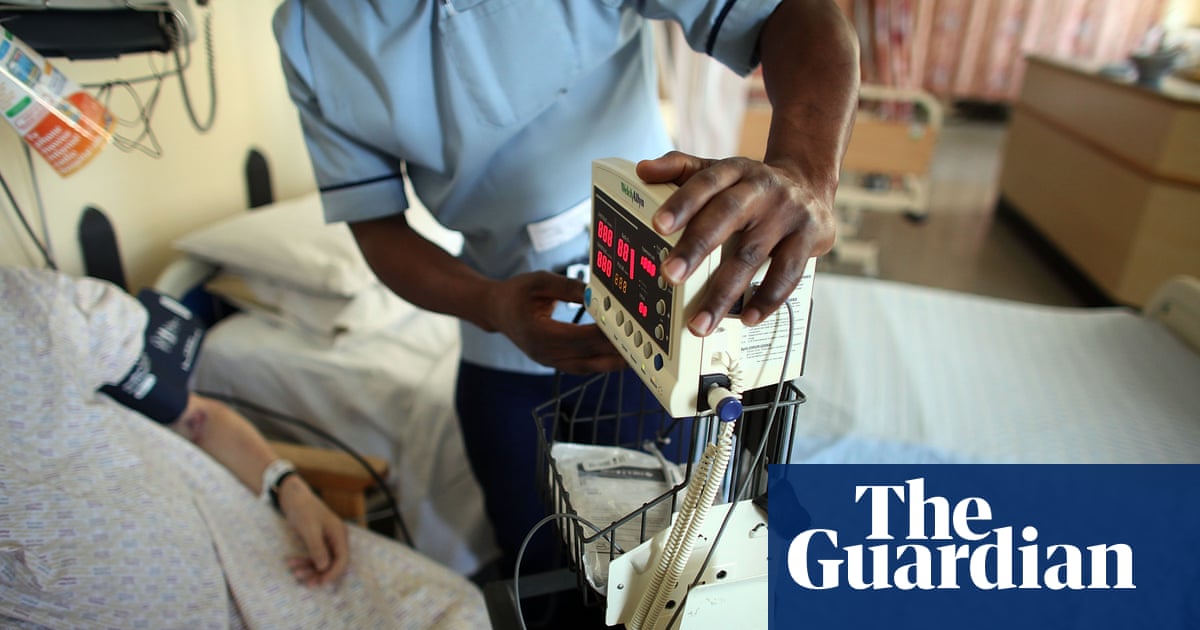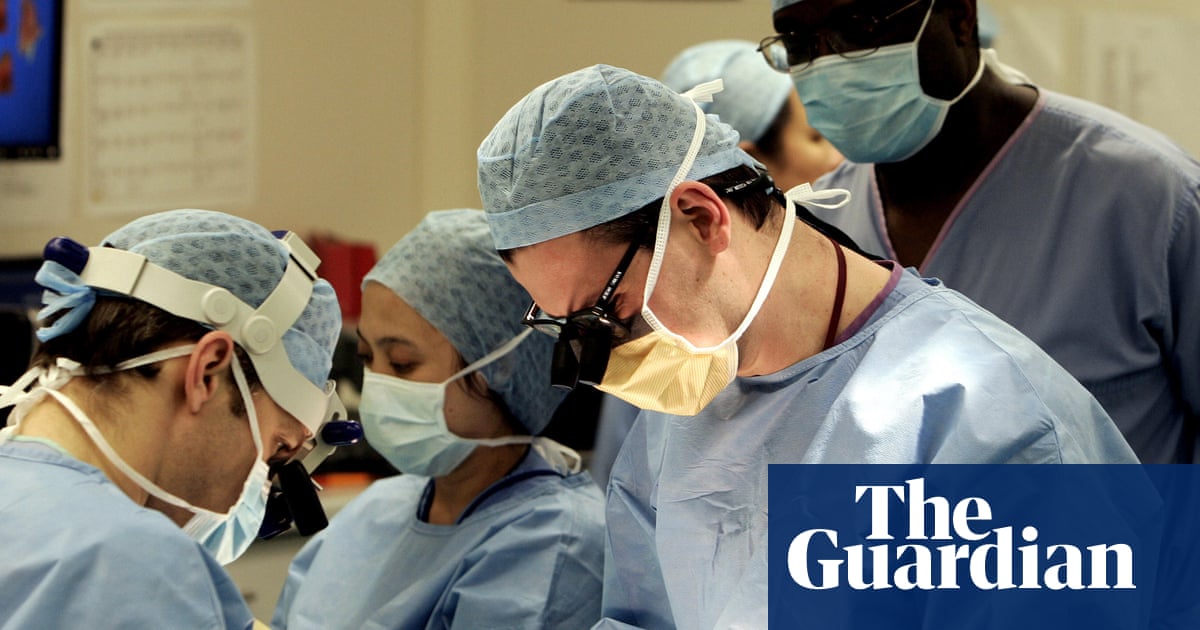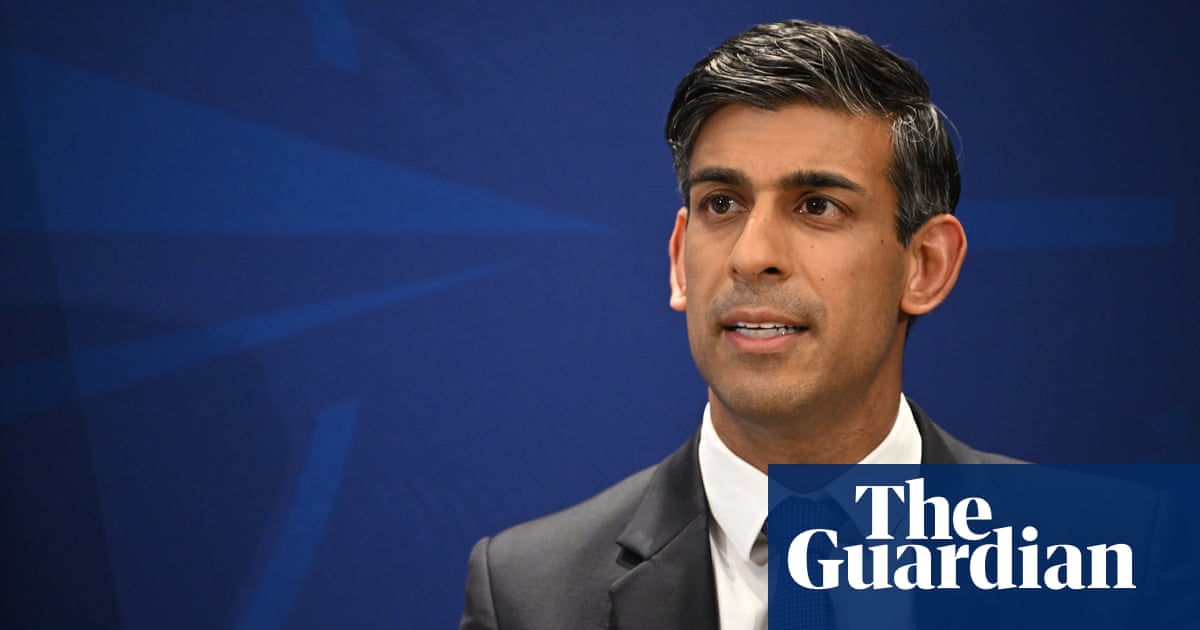
The crisis engulfing the NHS will continue until Easter, health leaders have warned, as senior doctors accused ministers of letting patients die needlessly through inaction.
More than a dozen trusts and ambulance services have declared critical incidents in recent days, with soaring demand, rising flu and Covid cases and an overstretched workforce piling pressure on the health service.
But amid warnings that up to 500 people a week may be dying due to delays in emergency care alone, and of oxygen for seriously ill patients running out in parts of England, NHS leaders warned more chaos was expected until April.
“It seems likely that the next three months will be defined by further critical incidents needing to be declared and the quality of care being compromised,” said Matthew Taylor, chief executive of the NHS Confederation, which represents the whole healthcare system in England, Wales and Northern Ireland.
Ministers face growing pressure to grip the crisis. The British Medical Association (BMA) said the government’s “deafening” silence and failure to act was a “political choice” that was leading to patients “dying unnecessarily”.
The Liberal Democrats urged the government to recall parliament, while Labour blamed government “mismanagement” for creating a sense of “jeopardy” around the NHS.
Taylor said the situation had reached crisis point: “Some of our members have said their ward staffing numbers are now below minimum levels as they work hard to set up more escalation spaces to support arrivals from ambulances, that they have had instances where their oxygen cylinders have run out temporarily, and that some of their patients have waited over two days for a bed.
“High rates of flu and Covid which have more than doubled, ongoing issues with delayed hospital discharges which is leaving over 12,000 medically fit patients stuck in hospital, and the aftershock of industrial action are compounding the longer-term issues of over 130,000 NHS vacancies, a decade-long lack of investment in capital and an elective backlog which continues to grow past seven million people.”
Taylor spoke as thousands more paramedics, nurses and doctors prepare to walk out over pay and conditions. Ambulance staff are due to strike on 11 and 23 January, while nurses will walk out on 18 and 19 January. A ballot for industrial action by junior doctors in England will open on 9 January.
The mounting crisis comes as the UK Health Security Agency (UKHSA) issued a warning to families about high levels of flu, Covid-19 and scarlet fever as children return to education and childcare settings.
“If your child is unwell and has a fever, they should stay home from school or nursery until they feel better and the fever has resolved,” the UKHSA chief medical adviser, Prof Susan Hopkins, said. She added that adults should not “visit vulnerable people unless urgent” when feeling unwell.
“Adults should try to stay home when unwell and if you do have to go out, wear a face covering. When unwell don’t visit healthcare settings or visit vulnerable people unless urgent,” she said.
On Monday, Robert Halfon, the education minister, claimed Rishi Sunak was treating the crisis as a “top priority” but neither the prime minister nor his health secretary, Steve Barclay, chose to comment.
“It is disingenuous for the prime minister to talk about ‘backing the NHS’ in his new year message, when his own health secretary is failing to discuss how this crisis can be fixed,” said Prof Philip Banfield, chair of the BMA.
The shadow health secretary, Wes Streeting, said he found it “completely inexplicable” as to why neither Sunak or Barclay “has raised their head or shown their face to say exactly what they are doing to grip this crisis and to support patients and those staff who are working in intolerable conditions and busting a gut against the most extraordinary pressures”.
Although ambulance services and A&E departments may appear to be taking the brunt of the tension, the whole of the NHS is now under major pressure, Taylor said.
“While secondary care is where these challenges are perhaps the most visible, all parts of the NHS including primary, community and mental health care are under huge strain.”
The current burden is so severe that it is also derailing efforts to tackle the enormous backlog of operations and surgeries that has ballooned to seven million in England alone, Taylor added.
NHS England is expected to report on Tuesday that a record number of cancer patients received treatment last year, but waiting lists were also the longest ever.
“The current situation in the NHS is intolerable and unsustainable, both for our patients and the hard-working staff desperately trying to keep up with incredibly high levels of demand,” said Banfield.
“The BMA has repeatedly invited the government to sit down and talk about the pressures on our health service, but their silence is deafening.”
The Royal College of Emergency Medicine doubled down on its claim that between 300 and 500 people are dying each week as a result of delays and problems with urgent and emergency care, after the NHS England chief strategy officer, Chris Hopson, claimed not to “recognise” that estimate.
Banfield said it was clear patients were dying needlessly due to the state of the health service.
“The government should deliver on its obligations to the public. This is a political choice and patients are dying unnecessarily because of that choice,” he said.
“The government must step up and take immediate action. Without intervention, waiting lists will continue to grow, patients will continue to suffer and staff will continue to leave.”
The Lib Dem health spokesperson, Daisy Cooper, said: “This is a life or death situation for huge numbers of patients. The NHS is collapsing in front of our eyes whilst the prime minister and health secretary are nowhere to be seen.
“This is a national crisis and the country will never forgive the government if they refuse to recall parliament whilst hundreds of people die in parked ambulances or hospital corridors.”












